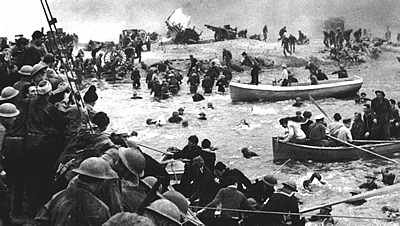Atonement
Atonement is the name of a novel written by Ian McEwan, It have been transformed into a movie in the last years. the novel take a lok in Briony, a thirteen year old girl from a rich house and how with his powerful imagination star thinking the worst of Robbie, a servant, accusing him of raping and ruining his love relation with Briony sister, Cecilia. After Cecilia and Robbie died during the second world war, Briony make a novel and try to give them the happy ending they deserve. I will answer some questions proposed in class now:

1. What sort of social and cultural setting does the Tallis House create? What emotions and impulses are being acted upon or repressed by its inhabitants?
The Tallis are a very rich and proud family, clasicist in some way. They are also british and for them the "honour" of being part of their family was great. Looking back we can see that love is repressed as Cecilia needs to hide his relation with Robbie as he is from a lower class or family. Also both sisters are expected to behave like ladies in every aspect.
2. A passion for order, a lively imagination, and a desire for attention seem to be Briony's strongest traits. In what ways is she still a child? Is her narcissism - her inability to see things from any point of view but her own - unusual in a thirteen-year-old?
 Briony have a very creative and powerful imagination, as she invents whhole complex stories from nothing, but she is still a child because she can only see her version of things. She firmly believes in her inventions although all evidence clealry points other way. This actually is very normal for her age, but she take it to a whole new level and make it unusual and even dangerous for others.
Briony have a very creative and powerful imagination, as she invents whhole complex stories from nothing, but she is still a child because she can only see her version of things. She firmly believes in her inventions although all evidence clealry points other way. This actually is very normal for her age, but she take it to a whole new level and make it unusual and even dangerous for others.
3. Why does Briony stick to her "version of the story" with such unwavering commitment? Does she act entirely in error in a situation she is not old enough to understand, or does she act, in part, on an impulse of malice, revenge, or self-importance?
In my opinion she was a narcisist person, so she needs to stick to her verion as she unconsciously thinks that her version, although a lie, it is what happened and she firmly believes it.
4. As she grows older, Briony develops the empathy to realise what she has done to Cecilia and Robbie. How and why do you think she does this?
As every adult, Briony mature and realizes the terrible thing she have done to Cecilia and Robbie, feeling guilty as they could never be happy because of her fault. Therefore she writes a novel giving them the happy ending they deserve.











